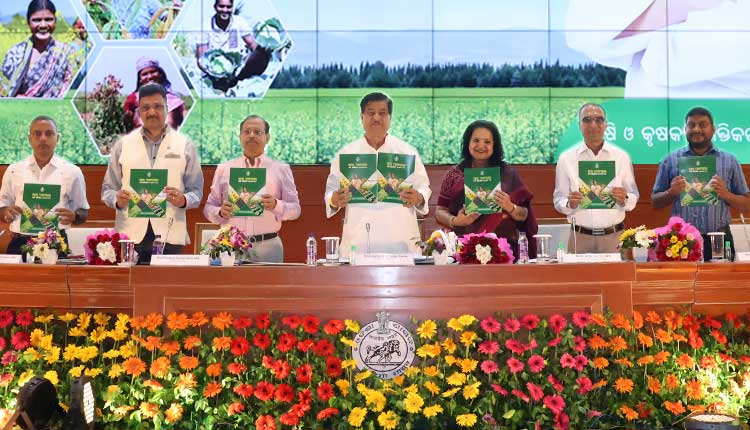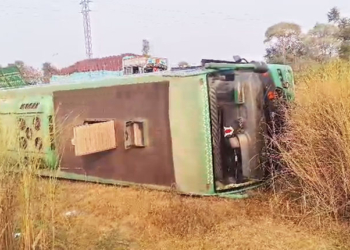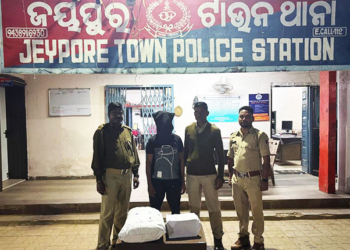Bhubaneswar: The ‘State Level Conference for Rabi Campaign 2023-24′ was inaugurated by Minister, Agriculture & Farmers’ Empowerment and Fisheries & ARD, Ranendra Pratap Swain at the State Convention Centre, Loka Seva Bhawan in Bhubaneswar on Friday. The objective of the Conference was to review and assess the Crop Performance and facilitate adoption of Technology.

Addressing the conference, Minister Swain said that Rabi Campaign is very important for the economy of the State. Owing to the visionary initiatives and innovative schemes of the state government, Odisha has become a surplus state in rice production. Crop diversification, integrated farming, rice fallow management, cultivation of cash crops such as pulses and oilseeds, vegetables are being encouraged to cope with climate change and to increase farmers’ income. The Minister said that everybody should show urgency to increase the production of rabi crops by making rational use of the available irrigation facilities in the state.
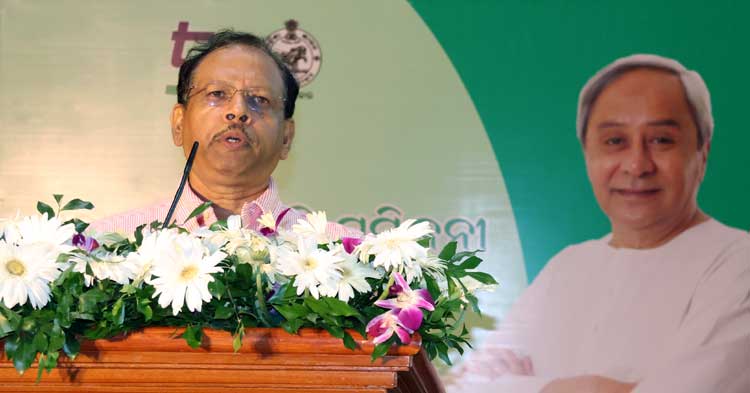
Joining the conference as Guest of Honour, Chief Secretary Pradeep Kumar Jena said that Odisha has now created a unique identity as a major food grain exporting state. Stating the monocrop agriculture is a thing of the past, he emphasized on the practice of climate smart agriculture and on diversification of crops with emphasis on pulses, oilseeds and vegetables. He also called for the reinvention of the agricultural extension system due to changing climatic conditions.
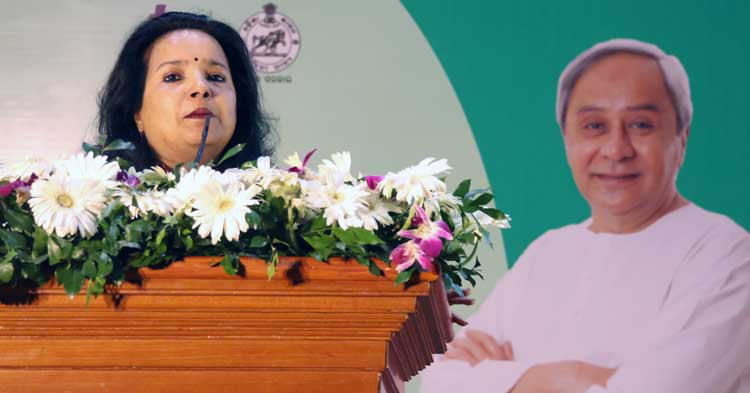
Development Commissioner-cum-ACS, Water Resources Department, Anu Garg said that the state government is investing adequate money in water conservation and irrigation system. She emphasized that every drop of water meant for agriculture should be used properly. She urged all officers to be more proactive in addressing issues affecting irrigation across the state in order to cover the irrigation potential created (IPC) area for Rabi 2023-24.
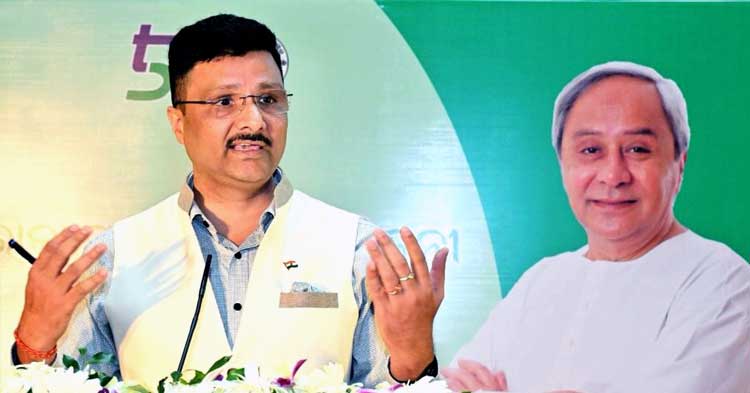
Principal Secretary, Agriculture and Farmers Empowerment, Dr. Arabinda Kumar Padhee said that the state agricultural policy ‘Samriddhi’ has helped in the economic development of farmers and remarkable success has been achieved in Odisha’s agriculture sector through the use of scientific methods. He commended the successful agricultural operations of this year which were made possible due to effective departmental convergence. He stressed on crop diversification, farm mechanization, agri-value chain & agri-entrepreneurship for agricultural transformation.
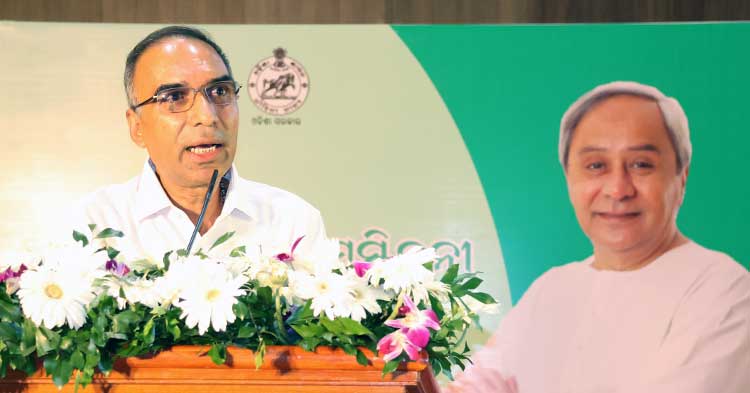
Principal Secretary, Fisheries and ARD, Suresh Kumar Vashishth stated that the ABCD of agriculture is Aggregation, Bonding, Convergence & Communication and Diversification. He emphasized on the cooperation of farmers, all officials and stakeholders and convergence of all related departmental activities and programmes for a successful Rabi Campaign.
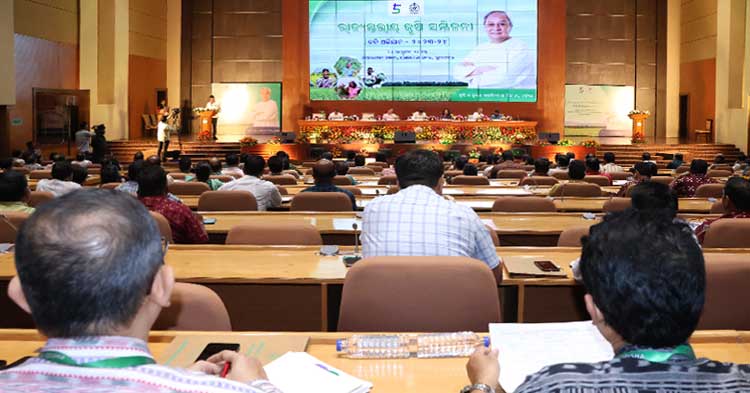
A Rabi Campaign booklet was released during the conference by the Minister and the dignitaries mentioned above, in the presence of Director of Agriculture & Food Production, Prem Chandra Chaudhary and Director of Horticulture, Rohit Kumar Lenka. The conference also included panel discussions attended by state and district-level officers, dignitaries from Odisha University of Agriculture & Technology, the Indian Council of Agricultural Research (ICAR), and CGIAR institutes.
Odisha has initiated a program to cover approximately 28.14 lakh hectares under different crops during Rabi 2023-24. This includes 14.34 lakh hectares under pulses, 3.73 lakh hectares under oilseeds, 5.39 lakh hectares under vegetables, 1.13 lakh hectares under condiments, and 0.3 lakh hectares under sugarcane, with a production target of 19.39 lakh MT for food grains, 7.53 lakh MT for pulses, and 4.18 lakh MT for oilseeds.
The Rabi program places its primary emphasis on a strategic trio of focus areas, each contributing to the overall goal of bolstering agricultural productivity and sustainability. First and foremost, it seeks to elevate irrigation usage, recognizing its pivotal role in ensuring consistent crop yields and reducing dependency on erratic rainfall patterns. Secondly, the programme is committed to promoting the cultivation of pulses and oilseeds crops by employing innovative techniques such as Rice Fallow Management, a practice that optimizes the utilization of fallow land. Lastly, it focused on implementation of block-specific Agriculture Action Plans in Delta command areas, thus ensuring a holistic approach to agricultural development and prosperity.
Coordination with the Water Resources Department is essential to ensure timely and adequate water release for irrigation. Emphasis has been placed on the successful implementation of various flagship programs, including Rice Fallow Management in 4 lakh hectares, Acid Soil Management in 1,30,000 hectares, National Horticulture Mission, Jackfruit Mission, PMKSY, OIIPCRA, and state-run programs like Odisha Millets Mission, Farm Mechanization, Jalanidhi, and other collaborative programs to accelerate growth in the agriculture sector and enhance farmers’ income.
The horticulture sector in the state has been gaining popularity among farmers, with an increasing number of them adopting improved technologies and diversifying into various horticultural crops to increase farm income. Therefore, the State Government places greater emphasis on various developmental activities in this sector. Various horticultural programs like the Mission for Integrated Development of Horticulture (MIDH), Pradhan Mantri Krishi Sinchayee Yojana (PMKSY), National Mission on Edible Oil – Oil Palm (NMEO-OP), and state plan schemes like the Development of Potato, Vegetables & Spices and Special Fruits Specific Scheme are being undertaken, which need to be monitored with utmost care.
Soil Conservation and Watershed Development are integral parts of government activities directed towards agricultural development. Different programs like Farm Pond Plus, MGNREGS, Rainfed Area Development, Odisha Mineral Bearing Area Development Corporation (OMBADC), District Mineral Foundation (DMF), Watershed Development under PMKSY, and Jholakundi under RKVY are monitored regularly.
A Rabi Circular has been issued to all the Collectors, providing them with appropriate strategies for cultivating Rabi crops suitable to the agro-ecological conditions of their respective districts. Director of Agriculture and Food Production gave an outline of the aims and objectives of the conference and Director of Horticulture offered the vote of thanks.




